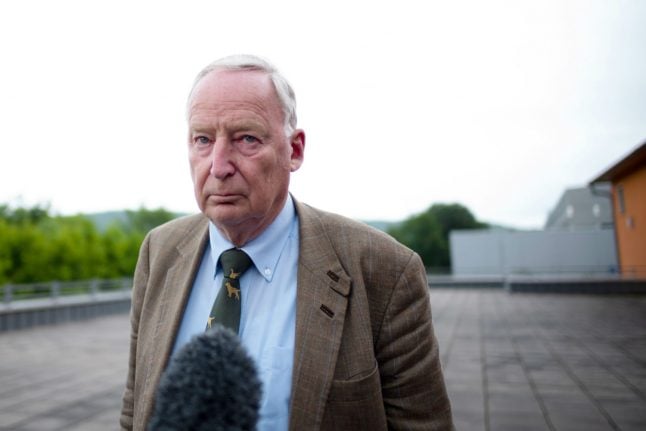“It is shameful that we have to respond to such comments made by a member of the German Bundestag,” Merkel's spokesman Steffen Seibert told reporters in Berlin.
“The government completely and unequivocally rejects any relativisation, any downplaying of the Nazi crimes,” Seibert said, describing Hitler's regime and the Holocaust as “a singular crime against humanity”.
It was only because Germans acknowledged their “everlasting responsibility” for the “immense suffering” caused, he added, that the country has been able to once again become a “good partner to other nations”.
Seibert was reacting to comments made at the weekend by AfD co-leader Alexander Gauland, who told members of the party's youth wing that there was more to the country's history than the 12 years of the Nazi regime.
“Hitler and the Nazis are just a speck of bird shit in over 1,000 years of successful German history,” Gauland said.
The comments unleashed a storm of criticsm in Germany, including from President Frank-Walter Steinmeier who accused Gauland of minimising the pain of the victims and seeking to sow new hatred.
“We must all stand against this,” Steinmeier said.
Merkel's spokesman said condemnation of Gauland's words was shared by “the government, the chancellor and fortunately the overwhelming majority of German people”.
Set up in 2013, the anti-Islam, anti-immigrant AfD has risen to become the country's largest opposition party after capitalising on anger over the arrival of more than a million asylum seekers since 2015.
It took nearly 13 percent of the vote in last year's election, winning its first seats in the national parliament where its lawmakers have changed the tone of debate.
Gauland has repeatedly stirred controversy with speeches attacking Islam and immigrants. He has also argued that Germany should be proud of its veterans of two world wars.




 Please whitelist us to continue reading.
Please whitelist us to continue reading.
When will the Communists apologize for the 100,000,000 they’ve killed in the last 100 years?